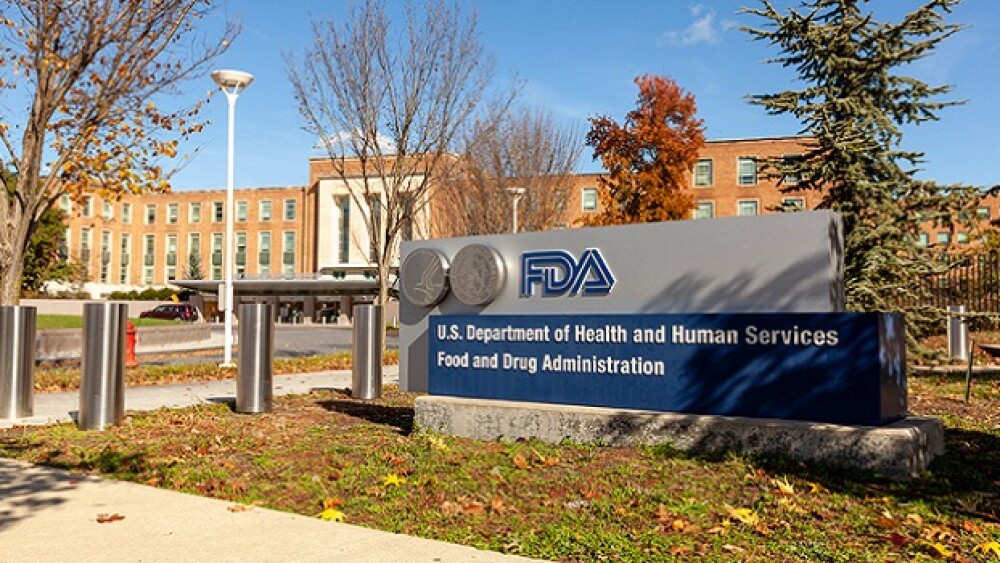Kyowa Kirin announced it is dropping its Parkinson’s disease candidate, KW-6356, a follow-up to Nourianz, despite promising Phase II data that showed the drug is “potentially effective.”
On Friday morning, Kyowa Kirin announced it is dropping its Parkinson’s disease candidate, KW-6356, despite promising Phase II data. Discovered by Kyowa Kirin, the candidate is an adenosine A2 antagonist.
KW-6356 was being developed as a follow-up to Nourianz (istradefylline), the company’s first-gen adenosine A2 agonist that was approved by the U.S. Food and Drug Administration in 2019. Kyowa stated in the press release that though the drug was “potentially effective in relieving motor and non-motor symptoms,” the decision was not due to clinical factors. Rather, it was made after a “thorough evaluation of the global regulatory landscape, development hurdles, and timelines for potential market entry.”
Elsewhere around the globe:
NuCana plc: Scotland-based NuCana plc picked up a patent infringement win in a European court against Gilead Sciences. The Regional Court of Dusseldorf ruled that several drug products of Gilead Sciences Ireland UC and Gilead Sciences GmbH, including hepatitis drugs Sovaldi and Harvoni, infringed on Nucana’s composition of matter claims in Germany.
For Nucana, the legal judgment has been nearly 20 years in the making. In 2003, Nucana filed a patent infringement claim regarding European Patent 2955190 related to “a small group of phosphoramidate nucleotides” that includes sofosbuvir, the active ingredient of Sovaldi. Sofosbuvir is also used in the combination drugs Harvoni, Vosevi and Epclusa. Nucana noted in its announcement that the nucleotides were invented by Chris McGuigan and preceded the first filing data for Gilead Sciences’ Sovaldi patent “by several years.”
The decision of the Germany-based court applies only to Germany, and Gilead may appeal the decision. Last year, Gilead Sciences filed a lawsuit against the company in the United Kingdom Patent Court, seeking to revoke the designation for the 2955190 patent in that country. Nucana filed a counterclaim, and the proceedings in the U.K. are ongoing. The same year, Gilead also attempted to challenge the patent claim, but that was denied by the courts.
GenScript ProBio – Global CDMO GenScript ProBio and DAAN Bio Therapeutics, a young biotech company that focuses on cell therapy and antibody treatments, are teaming up in what they call a “strategic cooperation MOU.” The companies plan to utilize DAAN Bio’s antibody production pipeline to develop antibody therapies, cell treatments and research and service projects. Previously, DAAN Bio has conducted single-cell transcriptomic and proteomic biomarker analysis through its own analysis platform using tissues secured from solid cancer patients.
MediWound – Israel-based MediWound Ltd. announced positive initial data from 11 patients in its ongoing open-label Phase I/II study of MW005 for the treatment of low-risk Basal Cell Carcinoma (BCC). Initial data showed that MW005 is safe and well-tolerated. Also, MediWound noted that most of the patients who completed the study achieved complete histological clearance of their target lesions following treatment with MW005. The company anticipates announcing the final data in the second half of 2022.
Iterum Therapeutics – Ireland’s Iterum Therapeutics announced an agreement with the U.S. Food and Drug Administration under the special protocol assessment process for a Phase III trial evaluating oral sulopenem etzadroxil-probenecid for the treatment of uncomplicated urinary tract infections. The company said the SPA agreement provides that the design and planned analysis of the trial, as set out in the protocol submitted to the FDA. The primary endpoint of the study is the overall response after 12 days. The study is expected to enroll approximately 1,966 patients and is anticipated to start enrolling in the fourth quarter of this year.
Medtronic plc – Also based in Ireland, Medtronic entered into a partnership agreement with Israel’s CathWorks in order to advance the understanding of how coronary artery disease (CAD) is diagnosed and treated. Fractional flow reserve (FFR) is a diagnostic technique that evaluates the physiologic impact of coronary artery stenosis. Medtronic will invest up to $75 million and immediately begin co-promotion of CathWorks’ FFRangio System in the U.S., Europe and Japan, where it is commercially available. FFRangio has shown diagnostic accuracy of 93%, sensitivity of 91%, and specificity of 94%. This non-invasive technology has the potential to disrupt and expand traditional FFR segments. As part of a separate agreement, Medtronic will have the option to acquire CathWorks once certain undisclosed milestones are met. The acquisition option agreement will expire in July 2027.
Quotient Limited – Based in Jersey, Channel Islands, Quotient Limited reached an agreement with InfYnity Biomarkers to partner on the development of an infectious disease testing platform. Under the collaboration agreement, InfYnity Biomarkers will assist Quotient in researching and designing infectious disease assays to enrich and expand the Quotient MosaiQ Serology Disease Screening menu. InfYnity is developing antibodies and antigens suitable for multiplexed infectious disease blood screening, confirmatory testing, determining vaccine efficacy, and monitoring testing that will be evaluated as part of the research collaboration.
Cyxone – Sweden’s Cyxone received a response from a Type B meeting with the FDA regarding an upcoming study of rabeximod, a potential treatment for rheumatoid arthritis. The FDA response allows Cyxone to continue planning the phase IIb study. The aim of the study is to confirm the therapeutic efficacy of Rabeximod in this patient population, as well as to expand the safety data documentation.
CQDM – The Quebec Breast Cancer Foundation and Theratechnologies secured a $2 million placement that will be used to finance a collaborative research project that intends to demonstrate the “efficacy and safety of a potential innovative treatment” for patients affected by metastatic cancer. Today’s announcement will allow Theratechnologies, a Montreal-based company, to further evaluate the potential of TH1902, a peptide-drug conjugate.
Granite Bio – Switzerland-based Granite Bio closed a Master Services Agreement with Germany’s ProBioGen. The agreement supports the development of Granite Bio’s mAb pipeline. Granite Bio’s lead candidate is a novel monoclonal antibody for the treatment of autoimmune and certain cancer indications.
Longenesis – Based in Latvia, Longenesis announced preliminary results from its study on Type 1 Diabetes care in partnership with Medtronic. The study found that insulin pump use supports a higher quality of life. Data evaluated the efficiency of local reimbursement policies for insulin pumps and glucose monitors.
HutchMed – Hong Kong’s HutchMed announced it will present the first data from the ongoing Phase II SAVANNAH trial at the International Association for the Study of Lung Cancer in Austria next month. The study is evaluating the combination of savolitinib with AstraZeneca’s Tagrisso in epidermal growth factor receptor-mutated non-small cell lung cancer patients with mesenchymal-epithelial transition receptor driven tumors, following disease progression on treatment with Tagrisso.
Zai Lab Limited – Based in China, Zai Lab announced that China’s National Medical Products Administration accepted the Biologics License Application for efgartigimod alfa injection, a first-in-class neonatal Fc receptor antagonist, for the treatment of adult patients with generalized myasthenia gravis.





